Never Put This on Your Meat After Barbecuing, CDC Warns
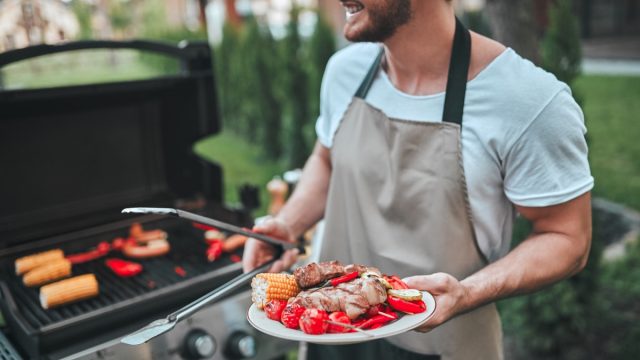
From June to August, your grill sees a lot of action, especially over the Fourth of July weekend. If you’ve been barbecuing for decades, flipping burgers on the grill might seem like second nature by now. However, you could be making a dangerous mistake without realizing it. The Centers for Disease Control and Prevention (CDC) has warned about the potential health hazards of putting this one thing on your meat after barbecuing it. Read on to find out what common cooking practice you need to avoid.
RELATED: If You See This at a Barbecue, Don’t Eat It, USDA Says in New Warning.
Don’t put any liquid that has touched raw meat on your food after it leaves the grill.
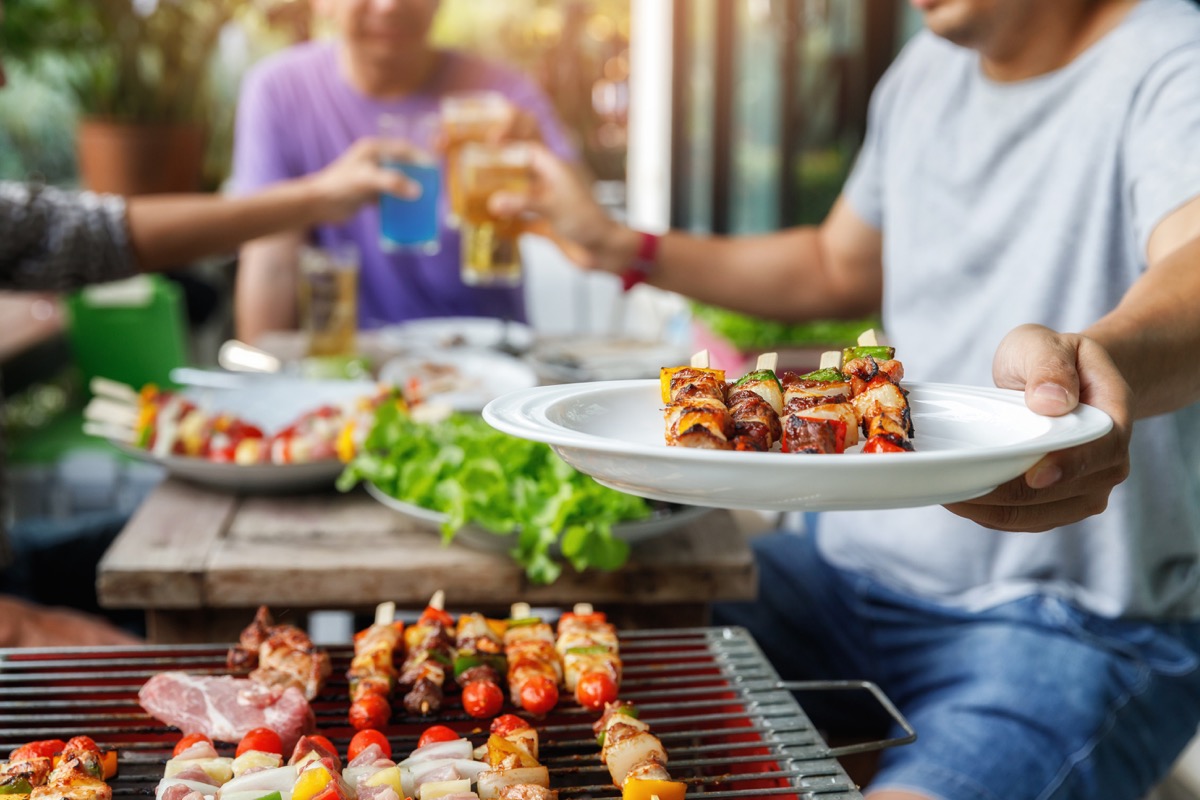
Cooking raw meat comes with its risks. You may think you’ve covered all the bases by carefully handling the raw meat separately, but there’s another component you might be forgetting. Any juice, marinade, sauce, or other liquid that has touched raw meat should never be put on your food once it’s off the barbecue. While it might be tempting to pour the rest of your tasty homemade marinade on top of freshly grilled meat, there are health risks.
“Throw out marinades and sauces that have touched raw meat juices, which can spread germs to cooked foods,” the CDC warns. “Make sure [the meat’s] juices do not touch other food, utensils, and surfaces.” The agency urges people to use fresh utensils to remove food from the grill and place it on a clean plate.
RELATED: If You See This, Get Out of the Pool Immediately, Experts Warn.
If the liquid is cooked along with the meat, it is safe to consume.
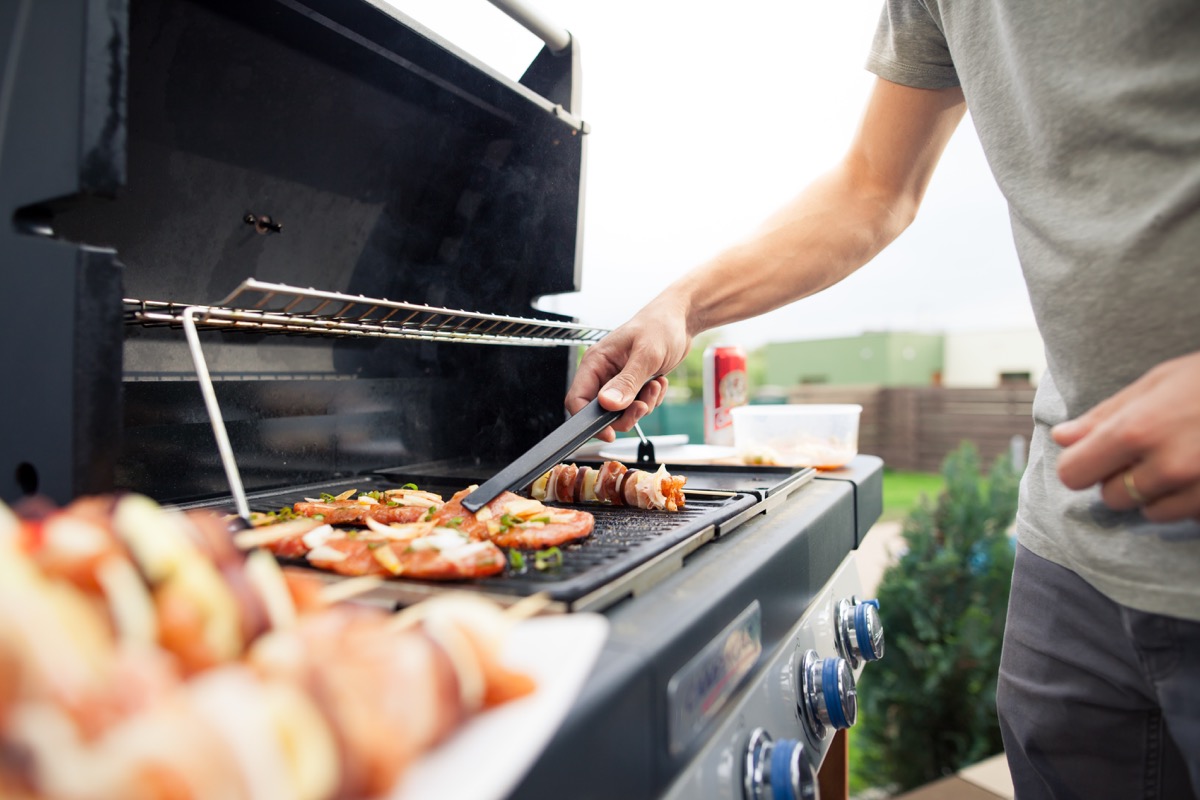
Liquid that has touched raw meat is safe to use, as long as you’re cooking it with the meat and it reaches a high enough temperature to kill bacteria. According to Meat Science, once the meat is cooked, the liquid that seeps from it is “totally safe to consume.” However, the site cautions, any liquid that has touched raw meat “can carry the same bacteria as a raw piece of meat, so it should be handled with care. Wash your hands after touching meat or [liquid], don’t consume it unless it has been cooked to a proper temperature, and try to contain it carefully to prevent cross-contamination.”
Ingesting liquid that touched raw meat puts you at risk of food poisoning.
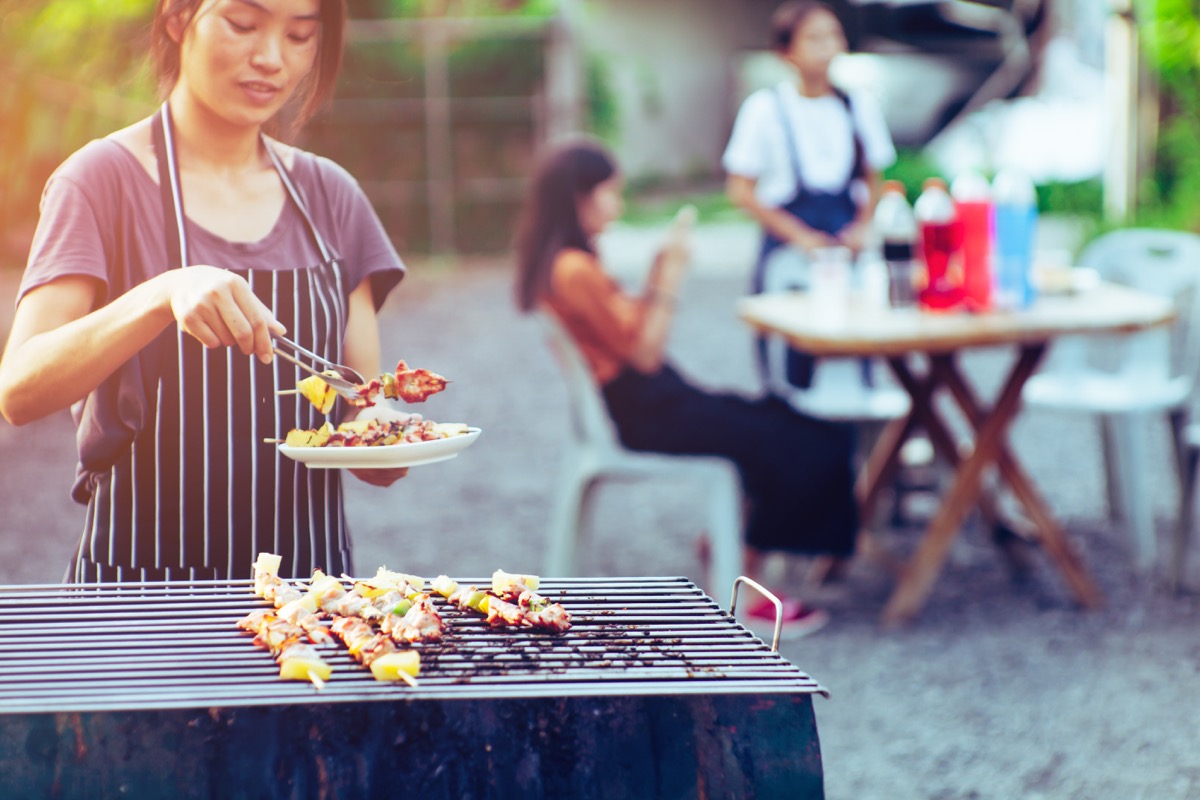
Even a trace amount of raw meat or its juices can lead to food poisoning. Stephen Sokalski, DO, Chief of Infectious Disease & Epidemiology at Advocate Christ Medical Center, told the Chicago Tribune that there was once a “significant outbreak of campylobacter,” a pathogen associated with raw chicken. The common denominator was one salad at a local restaurant, leaving experts initially perplexed. The Board of Health and Infectious Disease specialists then discovered that the salad had sat on a shelf below a container or raw chicken livers. “When people pulled out the chicken livers, a little [of the juice] would drip onto the salad,” Sokalski explained. He warned that “people need to be aware of these kinds of dangers.” And it’s important to be extra diligent when it’s hot out, Sokalski noted.
RELATED: For more safety advice delivered straight to your inbox, sign up for our daily newsletter.
Watch out for cross-contamination to surfaces, utensils, plates, and other food.
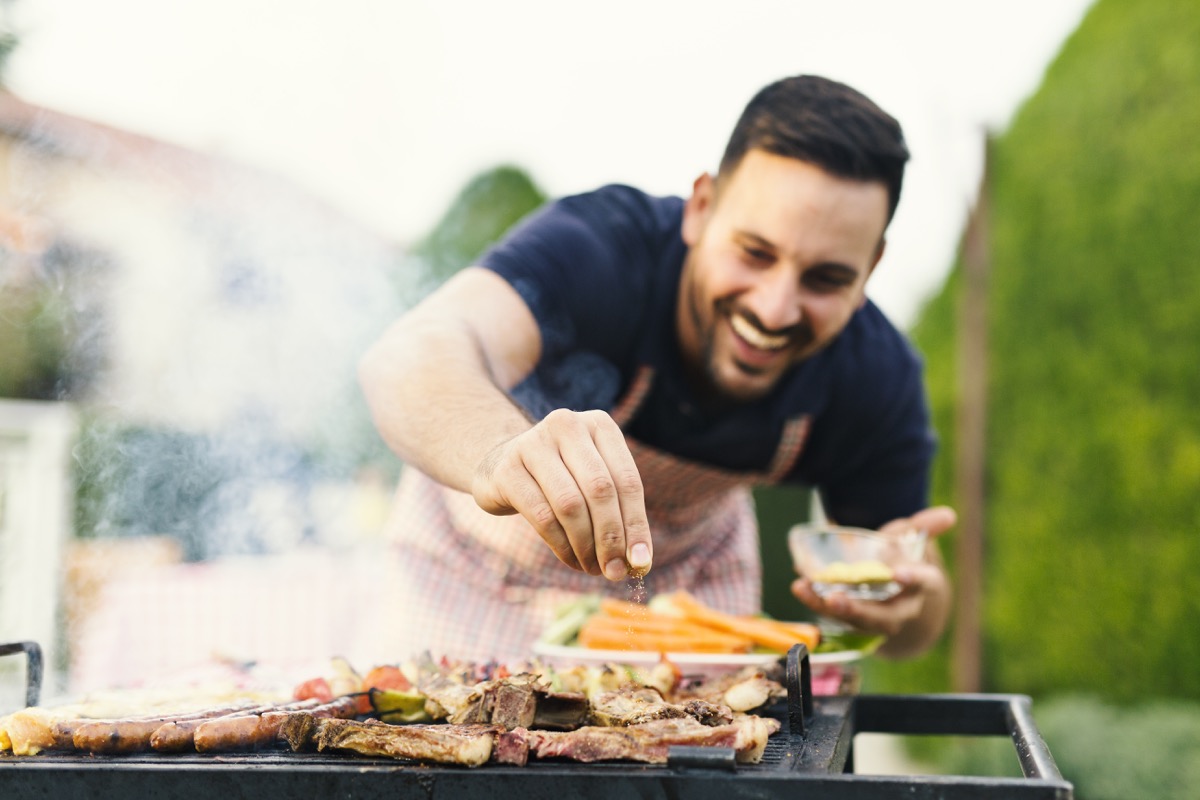
The CDC also wants to remind you that you should keep raw meat and seafood separate from other food when you’re handling it. And make sure you to wash your hands thoroughly after handling raw meat. Beyond that, you can stay healthy by refrigerating meat before grilling it, and putting any leftovers in the fridge no more than two hours after cooking it.